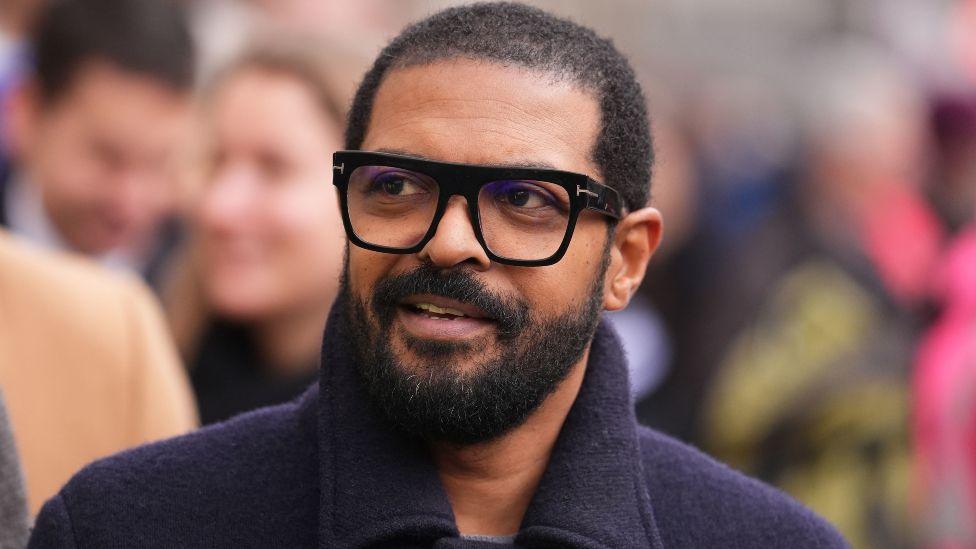Noel Clarke fails in attempt to strike out Guardian's defence in libel claim

Noel Clarke, pictured at the Royal Courts of Justice on Wednesday, has vehemently denied wrongdoing
- Published
Noel Clarke has failed in his attempt to strike out the Guardian's defence in his libel action against the newspaper.
The actor, writer and director is suing Guardian News and Media (GNM) over a series of articles which featured claims from a number of women who accused him of groping and sexually inappropriate behaviour on set over a number of years.
In a statement at the time, the former Doctor Who star vehemently denied any sexual misconduct or criminal wrongdoing.
On Wednesday, Clarke tried to get the defence's case struck out, but the judge rejected his application. It means that the trial of his defamation claim will now go ahead in March.
At a hearing at the High Court, Mr Clarke's barrister Arthur Lo said there were a number of reasons why The Guardian's defence should be struck out.
He told Mrs Justice Steyn that after Mr Clarke had threatened legal action, the Guardian's head of investigations told two of the newspaper's journalists to delete a number of messages on the encrypted messaging app Signal, and that other evidence was fabricated.
Mr Clarke's legal team told the court that this provided overwhelming evidence of perversion of the course of justice, and alleged that the newspaper's head of investigations had committed a criminal act by perverting the course justice, all of which he and the Guardian denies.
They claimed that the Guardian's actions had made a fair trial impossible.
Clarke's team later acknowledged that no additional or false evidence had been created by the Guardian.
Giving her judgment later, Mrs Justice Steyn criticised Mr Clarke's lawyers, writing that the extremely serious allegation of fabrication was "unacceptable".
She added: "Deletion is not fabrication, and such a grave allegation should not have been made and publicly aired without foundation."
During the hearing, the Guardian's barrister Gavin Millar KC contended that Noel Clarke's "hopelessly weak" accusations were intended to smear its journalists without any proper justification, and to launder defamatory allegations about Guardian employees into the public domain, allegations which couldn't be justified if made outside of court.
The newspaper said that much of the data that Mr Clarke claimed had been destroyed, had in fact been retained and disclosed.
It added that any data that was erased was the result of the newspaper's routine approach to data minimisation - particularly when dealing with confidential sources who required protection.
The newspaper said it had disclosed 3,000 documents related to the proceedings.
The Guardian rejected the allegation of fabrication of evidence and destruction of messages saying it was clearly untrue, and that there was no worthwhile evidence to support this accusation.
The full trial is currently listed to start at the beginning of March, and is scheduled to last for six weeks.
GNM is defending the legal action on the grounds of truth and public interest.
This article was updated on 5 February to add further comments from Mrs Justice Steyn, following the publication of her full judgement.